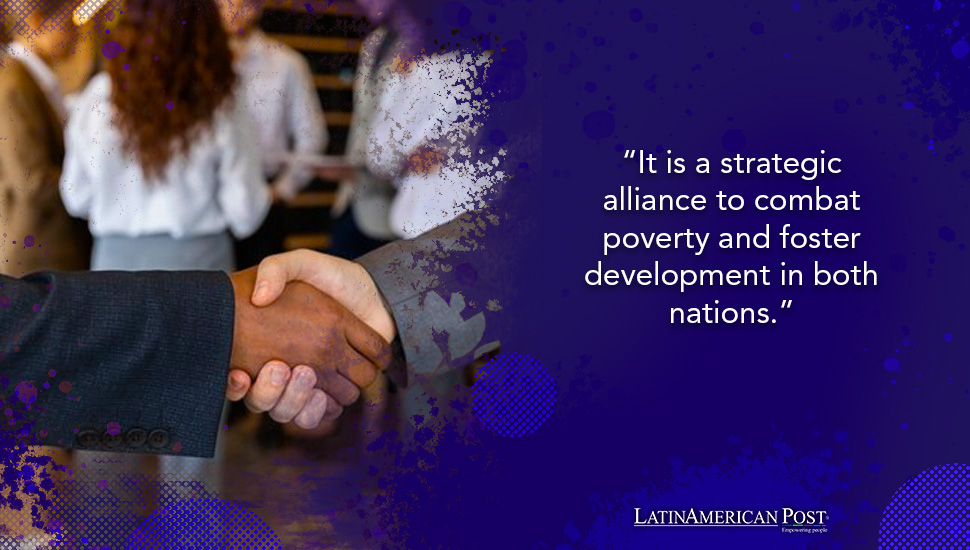Fostering More Powerful Ties: Why Latin America and Africa Must Unite for a Prosperous Future

The recent cooperation agreement between Nicaragua and Burkina Faso underscores a pivotal moment for Latin American and African relations. This partnership, encompassing sectors from agriculture to health, is a beacon for what could be a transformative alliance, urging both regions to dive deeper into mutual support and shared growth.
The Nicaragua-Burkina Faso Cooperation Framework
The imperative for stronger international alliances has never been more pronounced in a world increasingly defined by global challenges. The recent approval by Nicaragua’s National Assembly of a comprehensive cooperation framework with Burkina Faso is not just a bilateral agreement; it represents a step toward a future where Latin American and African countries leverage their shared histories, challenges, and potentials to forge a path of sustainable development and mutual prosperity.
Historically, the ties between Latin America and Africa have been woven through the complex tapestries of colonial legacies, shared struggles for independence, and parallel paths in the post-colonial world. Despite these commonalities, the vast potential for collaboration in economic, social, and political spheres has often been overlooked. The Nicaragua-Burkina Faso agreement, encompassing economic, financial, trade, industrial, agricultural, scientific research, health, culture, tourism, and professional training cooperation, is a testament to the untapped synergy between the two regions.
This partnership is not just about strengthening diplomatic and friendly ties; it is a strategic alliance to combat poverty and foster development in both nations. By uniting in areas such as agriculture, a backbone of both economies and scientific research, where shared knowledge can lead to innovative solutions for endemic challenges, these countries are setting a precedent for how developing nations can support each other in an increasingly polarized world.
Global Impacts: Diversifying Alliances in Uncertain Times
The significance of this cooperation extends beyond the immediate benefits to both countries. For Latin America, it represents an opportunity to diversify diplomatic and economic relationships in the face of fluctuating alliances and financial uncertainties. For African countries grappling with the impacts of climate change, political instability, and economic challenges, partnerships with Latin American nations offer a chance to bolster their resilience and innovation capacities.
Critically, this agreement was signed amidst significant political and social challenges within both nations. Burkina Faso has faced coups and ongoing jihadist threats, displacing millions and destabilizing the country. Conversely, Nicaragua has been navigating a profound political crisis since 2018, marked by contested elections and widespread social unrest. These contexts underscore the necessity of international solidarity and cooperation as both countries seek to navigate and overcome their internal challenges.
The timing of this agreement, aligned with the 44th anniversary of the Sandinista revolution in Nicaragua, is symbolic. It reflects a shared understanding of the importance of solidarity and cooperation in the face of adversity—a lesson deeply ingrained in the histories of both Latin America and Africa. The revolutions and struggles for independence across these regions echo a familiar spirit of resilience and a collective quest for sovereignty and development.
Profound Implications: Catalyst for Future Collaborations
The broader implications for Latin America and Africa are profound. This partnership should serve as a catalyst for other nations within these regions to explore similar collaborations. The potential for mutual growth is immense, from joint ventures in renewable energy and sustainable agriculture to collaborative efforts in education and healthcare innovation. Such alliances can also amplify developing countries’ voices in global forums, advocating for fair trade practices, climate justice, and equitable development policies.
Moreover, cultural and educational exchanges between Latin American and African countries can foster a deeper understanding and appreciation of shared histories and diverse cultures, laying the foundation for a more interconnected and empathetic world.
However, realizing the full potential of these partnerships requires concerted effort and commitment. It necessitates overcoming logistical challenges, language barriers, and historical prejudices. It also requires a strategic approach to leverage comparative advantages, align development goals, and navigate the complexities of international diplomacy.
A Beacon of Hope: The Call to Action
The cooperation agreement between Nicaragua and Burkina Faso is a beacon of hope and a call to action. It demonstrates that countries can find common ground and work together for mutual benefit even amidst political turmoil and social challenges. This is a crucial moment for Latin American and African nations to look beyond traditional alliances and explore new partnerships that can withstand the tests of time and change.
Also read: Bolsonaro’s Fall is a Blow to Brazil’s Conservative Opposition
Strengthening ties between Latin America and Africa is not just beneficial; it is imperative for the future prosperity of both regions. The Nicaragua-Burkina Faso cooperation framework is a pioneering step in this direction, but it should not be the last. As the world grows more interconnected, the success of nations will increasingly depend on their ability to forge inclusive, equitable, and sustainable partnerships. Latin America and Africa have much to offer each other and the world. It’s time to embrace this potential and work together towards a shared and prosperous future.




